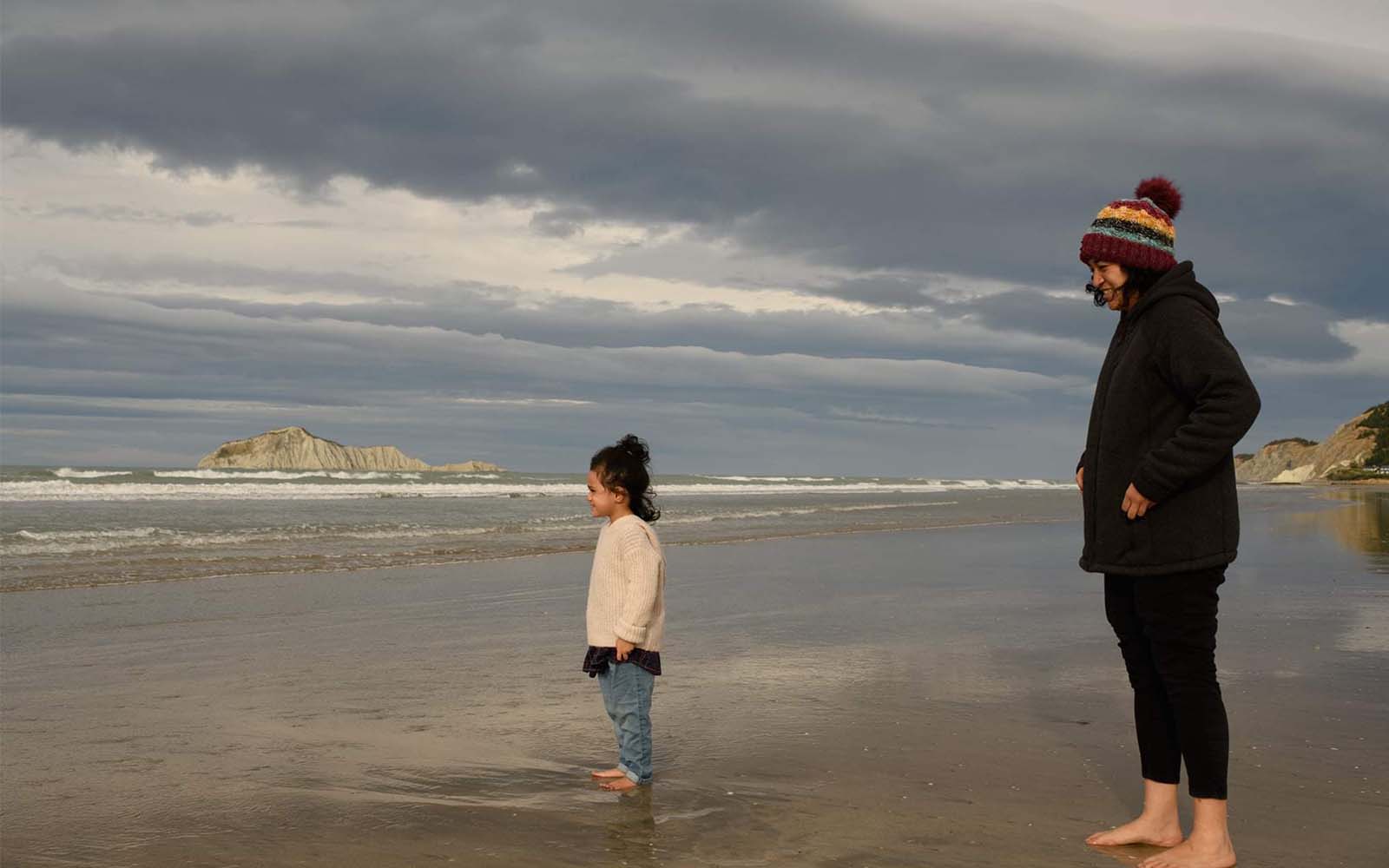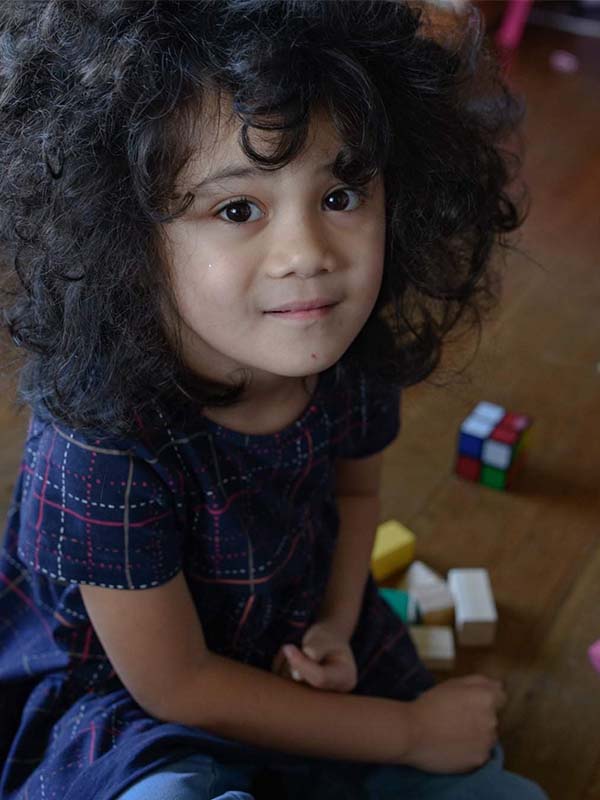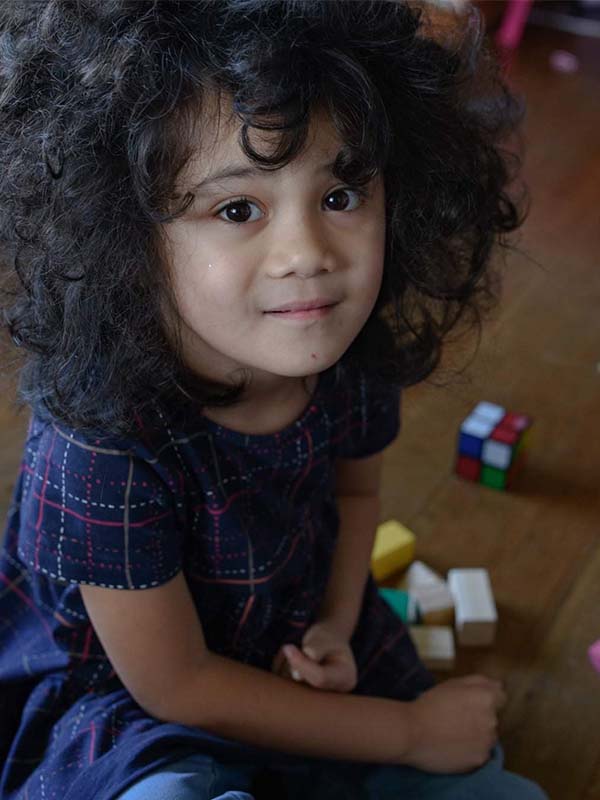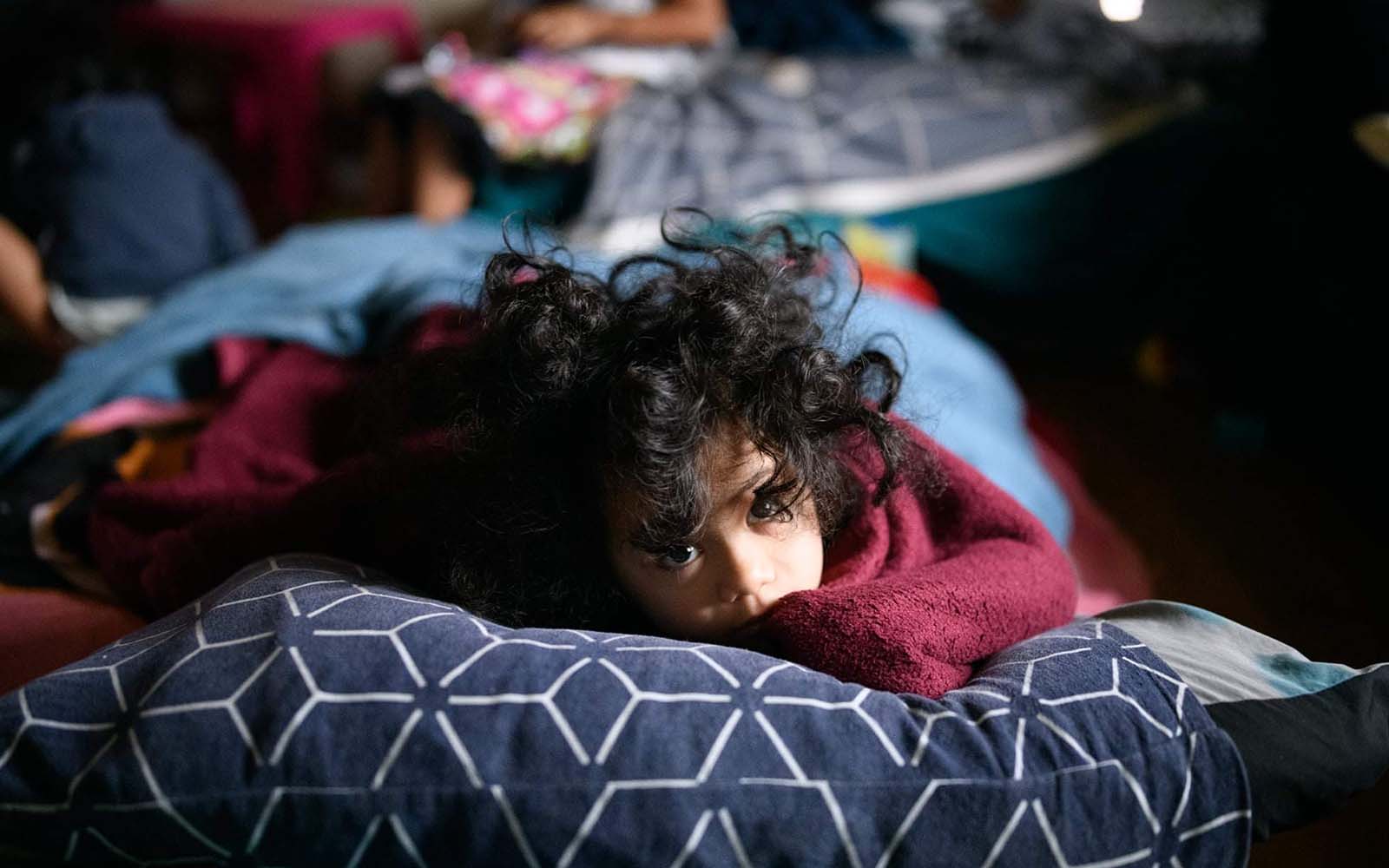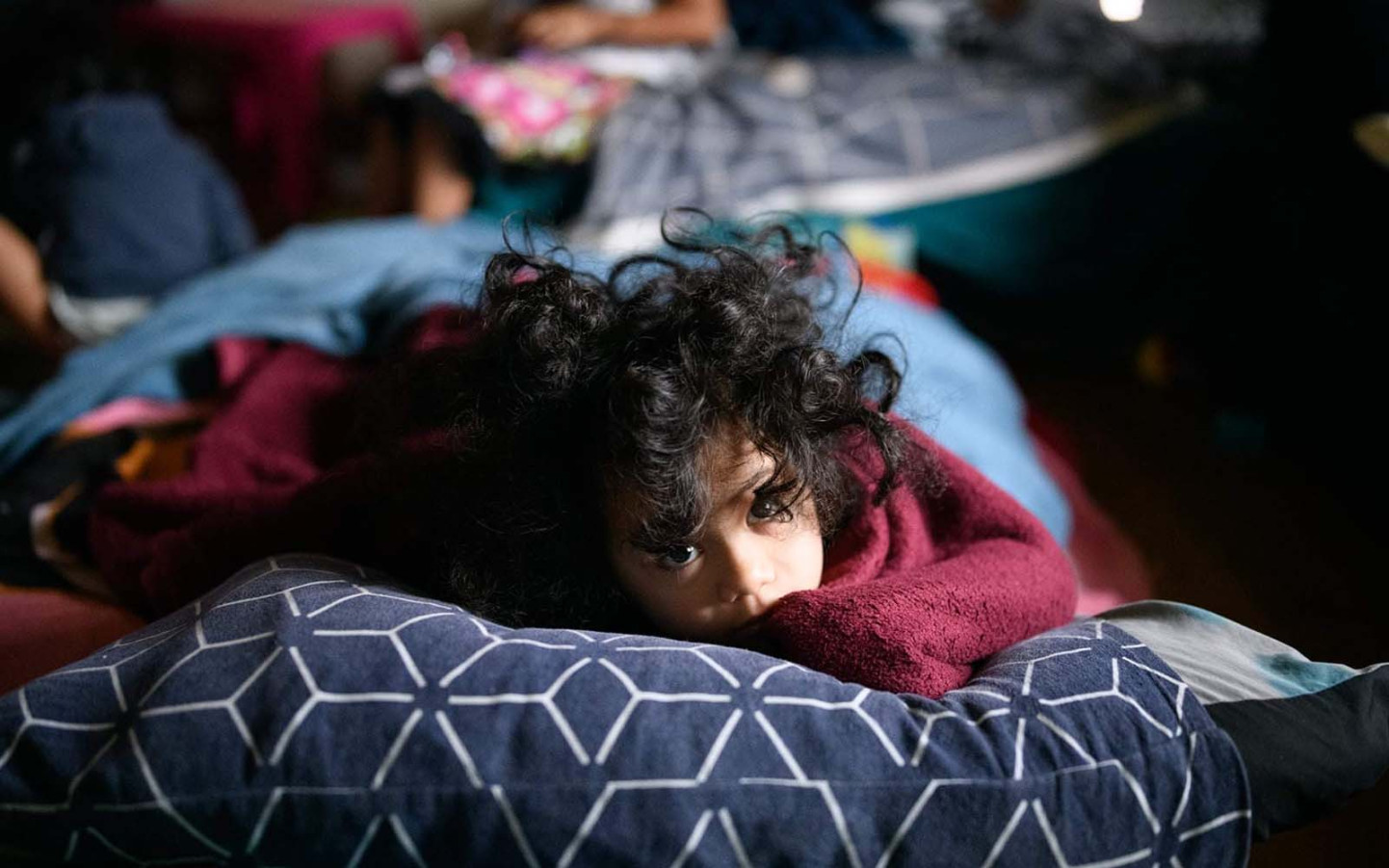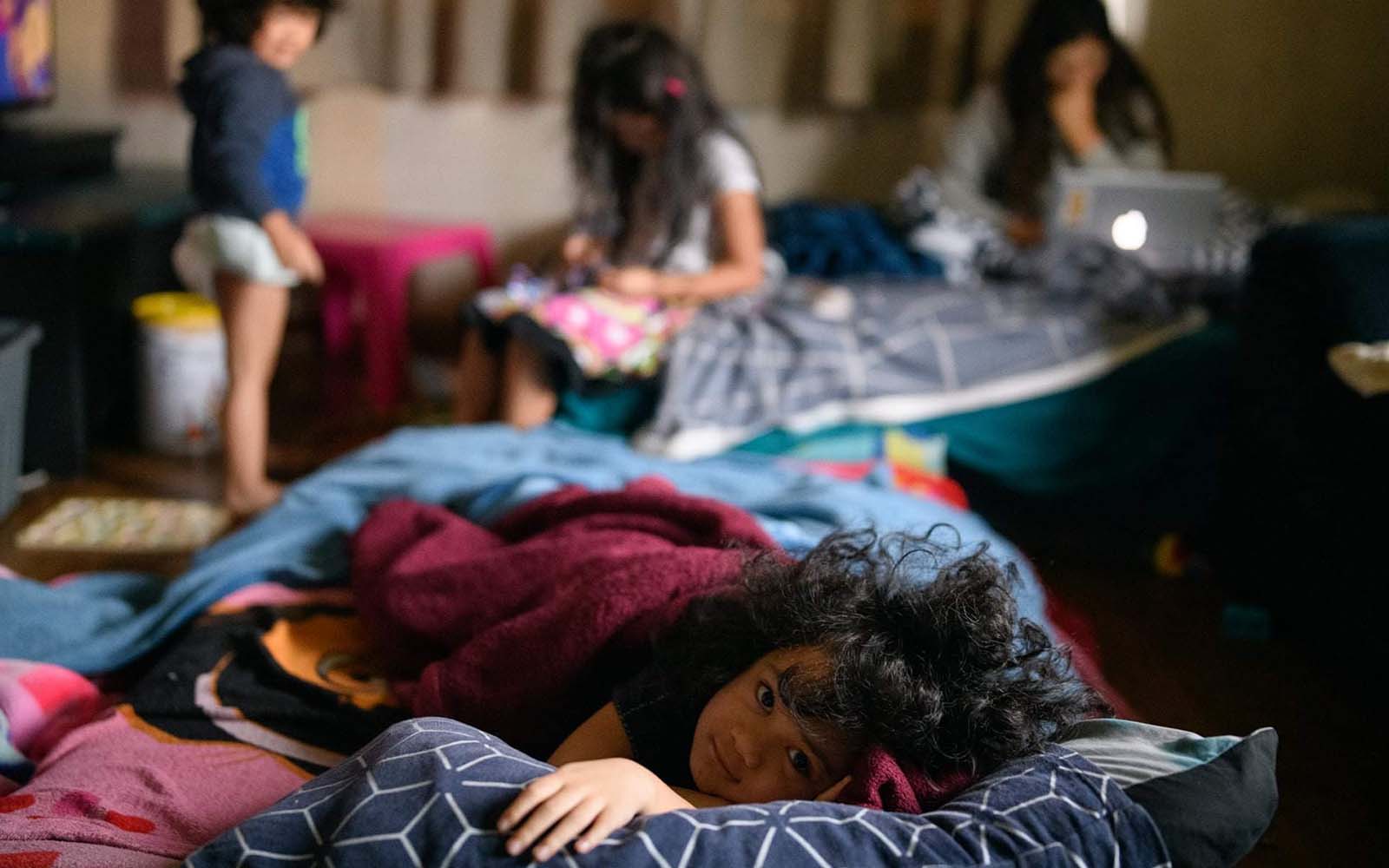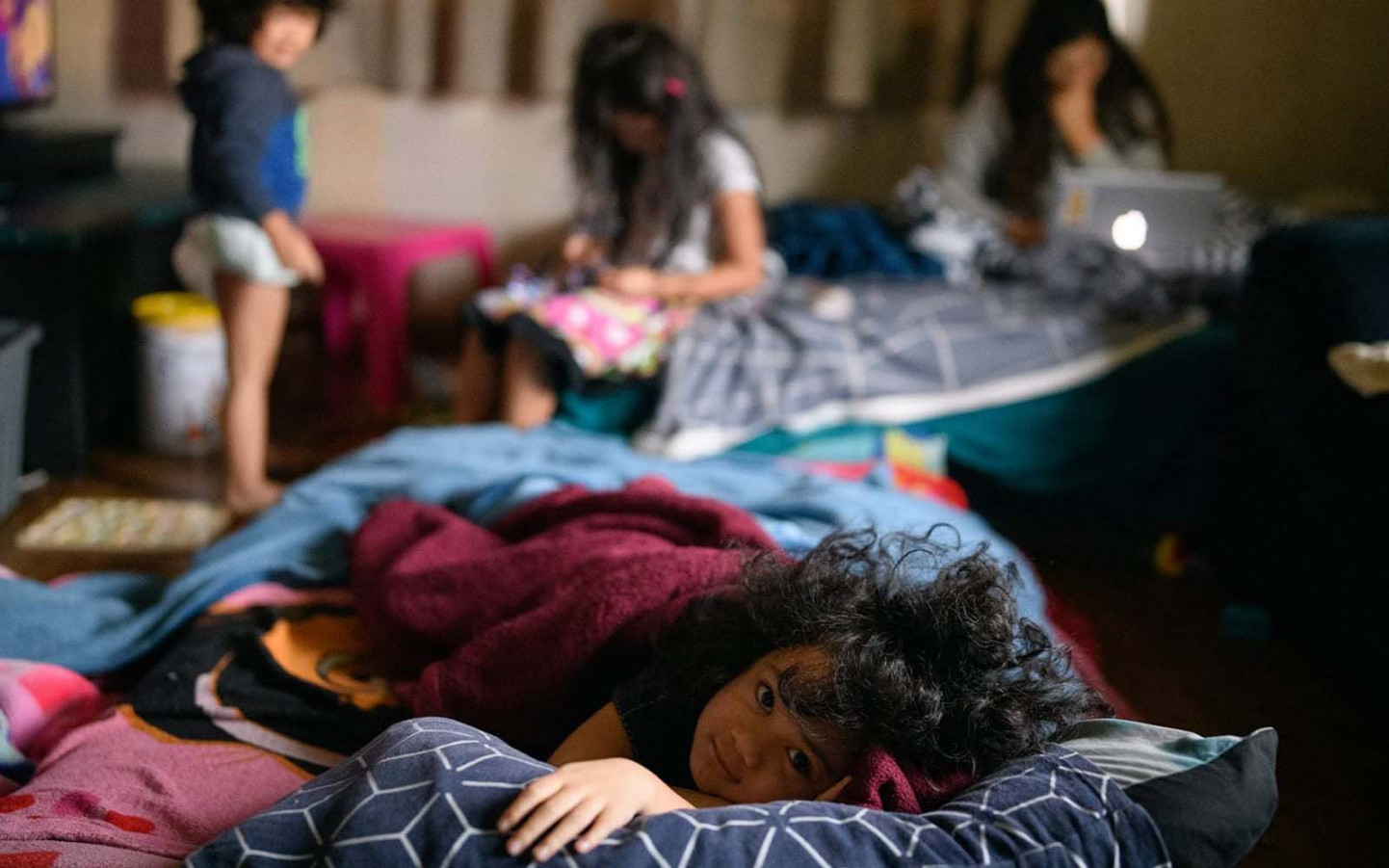
Celebrating autism – 6 ways you can support whānau

04 April 2022
For māmā Waitangi Teepa, World Autism Awareness Day is a chance to celebrate her three neurodiverse takiwātanga tama ariki. Waitangi describes her tama ariki as her Hinepūkohurangi (Goddess of the Mist), Patupaiarehe Princess and Tūrehu Prince, and says their takiwātanga only adds to their uniqueness, specialness and strengths.
Four-year-old Te Wehengarua Rangimaria doesn't speak, yet she's an excellent communicator. Using hand gestures and facial expressions, she knows how to get her point across without saying a single word. The preschooler was diagnosed with global developmental delay (GDD) and severe autism at the age of two. Her māmā, Waitangi Teepa, received confirmation by specialists after her suspicions were aroused when another māmā approached her at a teddy bear's picnic, asking how long she'd known about her daughter's autism. Having suspected Autism Spectrum Disorder (ASD) prior to the encounter, Waitangi was relieved to finally have someone validate her daughter's unique behaviour.
I was just so happy. It gave me the courage to voice what I felt I knew for so long.
Waitangi Teepa
April is Autism Awareness Month
World Autism Awareness Day, held annually on 2 April, aims to bring awareness, appreciation, and acceptance to autistic individuals. For Waitangi Teepa, it's a chance to celebrate her three neurodiverse tama ariki – and what makes them unique.
Her eldest, six-year-old Te Rangi Tiahopo is classed as gifted. She has an excellent ability to focus and is very good at concentrating on things that pique her interest.
"To me she's like her ancestress Hinepūkohurangi – Goddess of the Mist. She comes alive at night and in spaces that simulate our whare tīpuna and stimulate wānanga ."
Her youngest, three-year-old Timoti Karetu, is yet to get a formal diagnosis, but autism, and possibly Attention-Deficit Hyperactivity Disorder (ADHD) are suspected.
"He is my tūrehu prince. He reminds me of Tūmatauenga in how logical, efficient, regimented and strategic he is."
All of them have their unique qualities and particular ways in which they function.
A village of supporters
Waitangi says her whānau has been "blessed” to have a village of supporters around them as they navigate everything that comes after an ASD diagnosis.
"They are our backbone, strength and biggest allies. We also have an exceptional team of specialist support. We are lucky and privileged to have them."
Top tips for whānau supporters
- Me āta titiro, me āta whakarongo. Observe without judgement, listen with an open heart.
- Me āta kōrero tō katoa kia mārama. Speak with all of your being, words sometimes aren't enough or sometimes they're way too much. Try using hand gestures, body language and over-the-top expressions.
- He taonga te whakaaro nui ki te tama ariki, ki tōna kaitiaki hoki. Our tama ariki come first, always. So, a kind thought to their parents or guardians, or a deed toward their wellbeing is absolutely precious.
- Waiho au ki ahau anō. Let our tama ariki be, wherever they may be. It's up to us to change, not them.
- Māu tonu koe e kuhu. If you really want to be involved, you will be. Don't wait for an invitation, why not bring over some kai, help tidy the house, or mow the lawns.
- Akiaki, tautoko. Support our local organisations who do exceptional mahi with very little resources.
Waitangi says the past two years have not been an "easy road to travel". At times she's felt lonely and isolated, criticised and judged, but it's the people who've stood by her side – without judgement – that have made all the difference.
